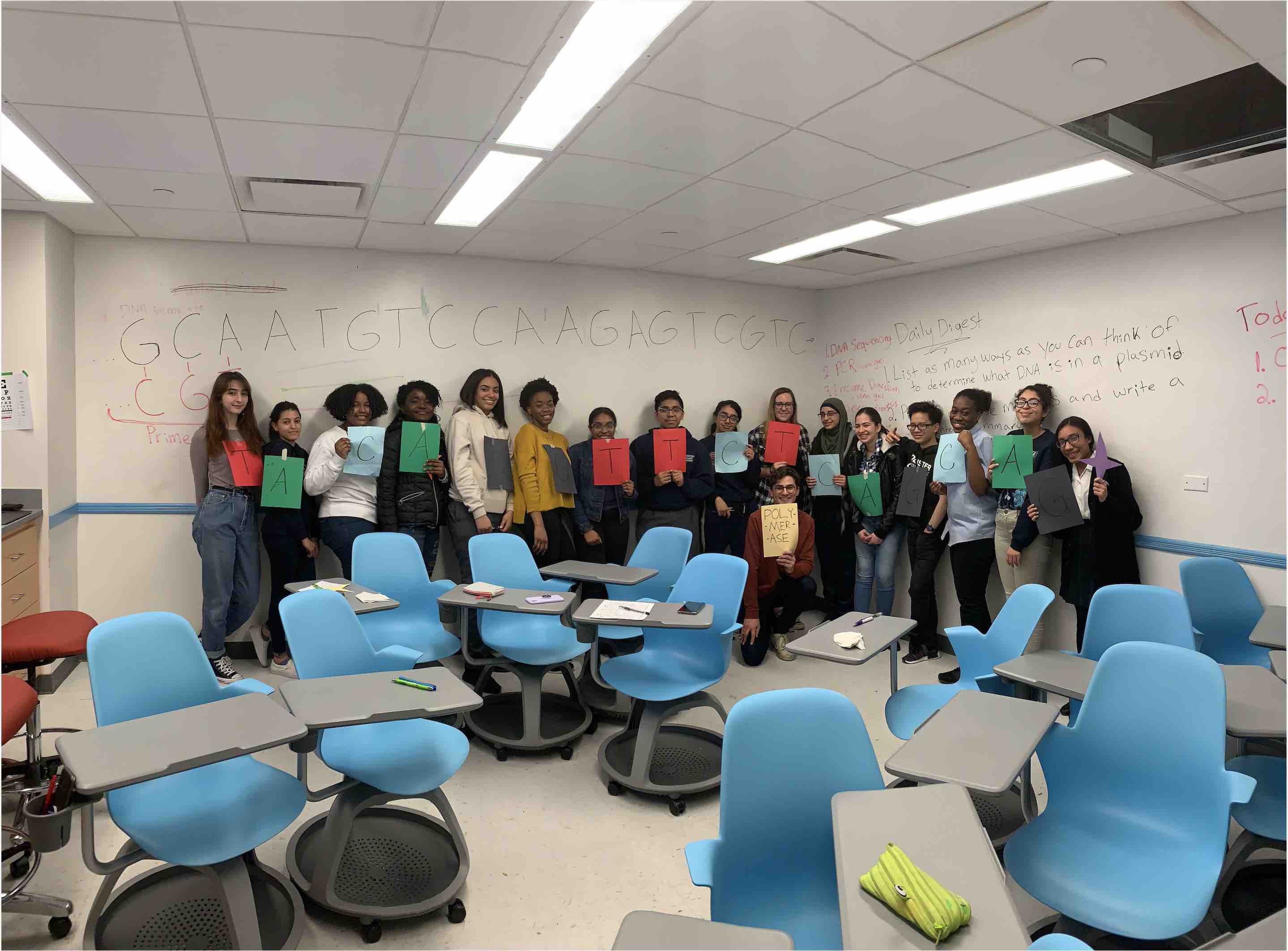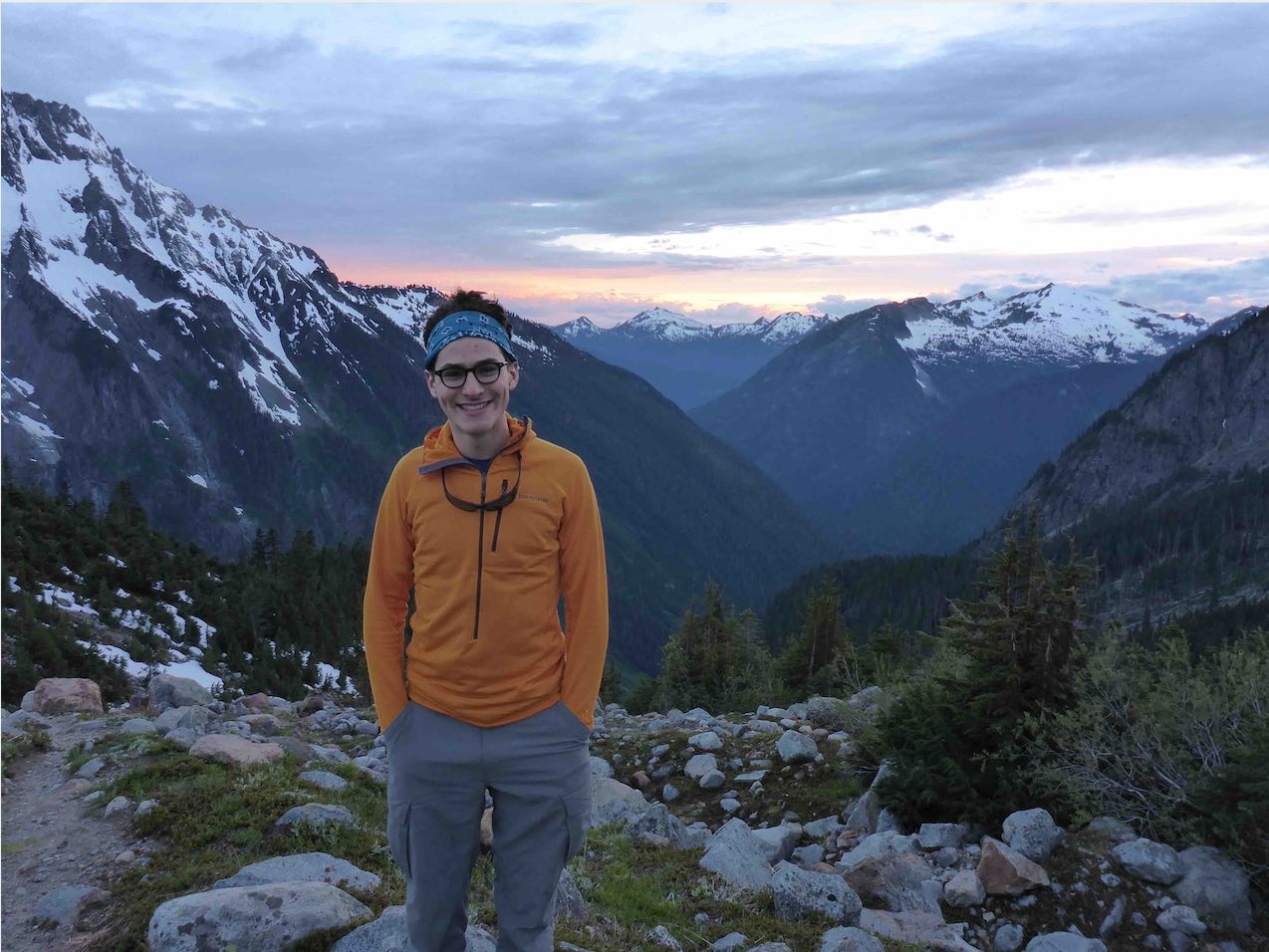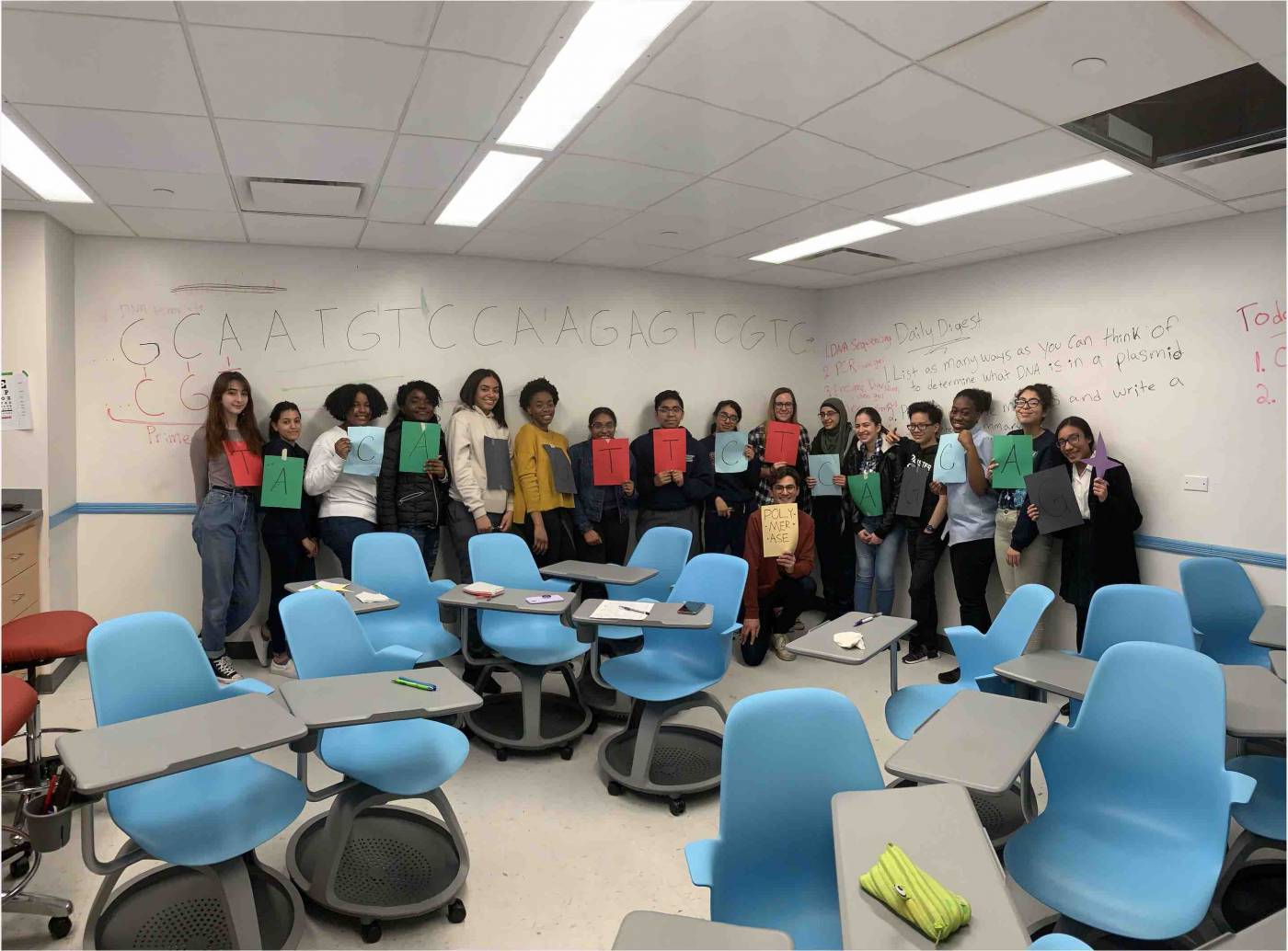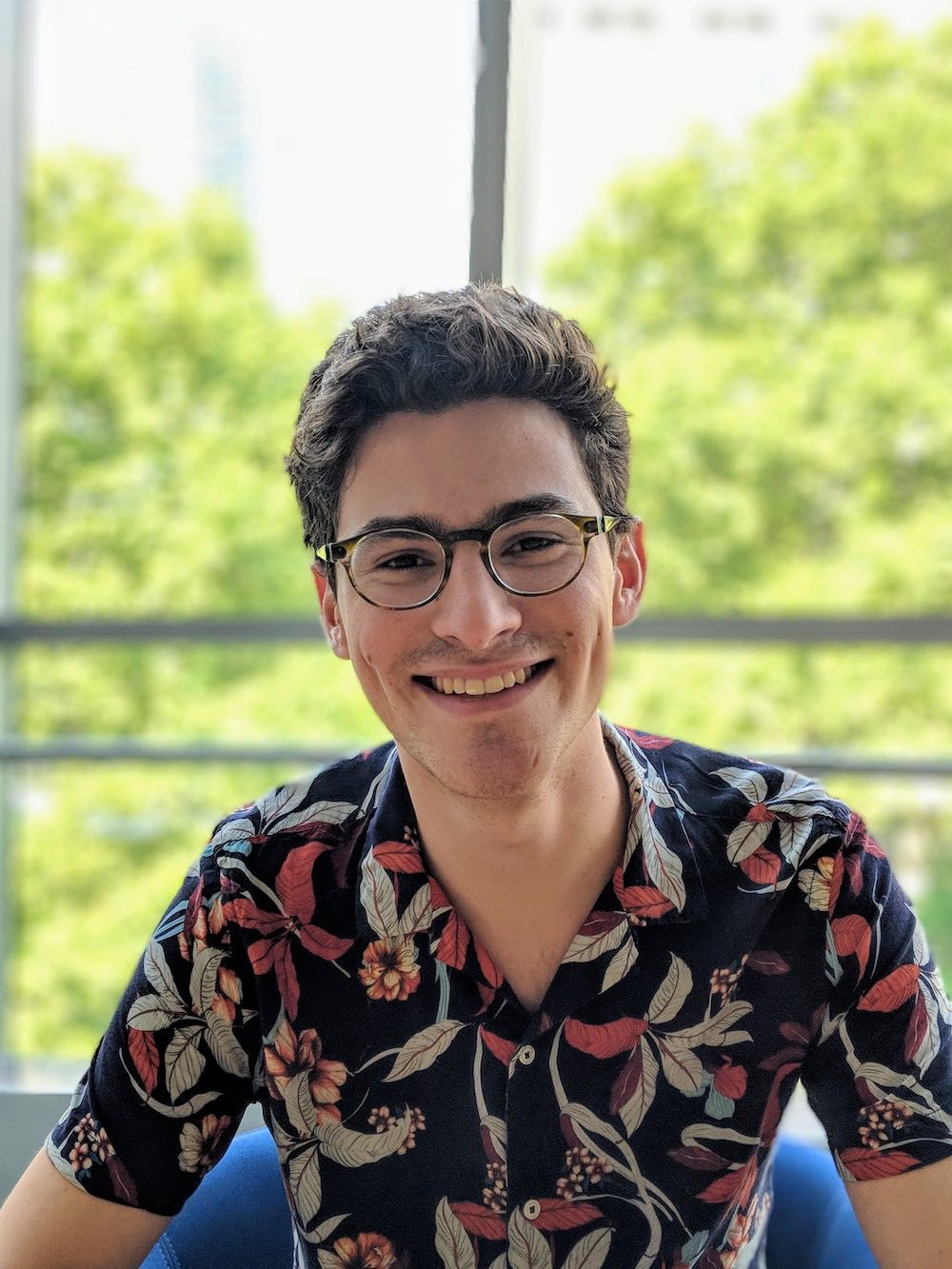Joe Levin
In his free time, Joe enjoys exploring the New York City food and drink scene, and loves backpacking off-the-grid! Eventually, Joe hopes to traverse the Appalachian Trail.

Joe Levin is a Graduate Fellow in the Laboratory of Mechanobiology and Structural Biophysics at The Rockefeller University and Course Facilitator for RockEDU’s LAB Jumpstart.
Joe grew up in London, England, and describes the city atmosphere—including its diversity and bustling nature—as quite similar to New York City. Nevertheless, Joe misses many aspects of London, specifically, “Fish and Chips (with lashings of vinegar), British Chocolate, how clean the . . . London subway is [and] people being more polite and restrained…”.
When Joe completes his training, he plans to remain in New York City. According to Joe, after experiencing the excitement of city-living, he finds it difficult to imagine living elsewhere, besides for, perhaps “another big city, like Chicago or LA”.

As I learnt more and more about how living things work it prompted more and more questions. I’ve always liked understanding how things work, so that component of being a scientist has really appealed to me for as long as I can remember.
What’s your favorite thing about being a scientist? Did you always want to be a scientist?
“Most of all, I like being able to work on problems I find genuinely fascinating. Going into the lab feels good because I really want to know the answers to the questions I ask and the results of the experiments I run. Biology was my favorite subject in school, and when I was at college studying biochemistry I really enjoyed it also . . . Frankly, the jobs my friends were applying for seemed so boring in comparison, so I decided that I would just keep going with science. the next step for me was a Ph.D. and that’s what I am working towards now.”
If you hadn’t pursued science, what would you have done instead?
“I’m honestly not sure! The two things that appeal the most would be teaching, or working in environmental conservation.”

Can you think of a specific time when you found science or pursuing science challenging?
“Every day is a challenge, because experiments (even simple ones) fail the whole time and usually you don’t really know why. But the most challenging moment I can remember was when I was first learning to code for the purposes of analyzing a large amount of data about a protein I was interested in. I was overwhelmed by the volume of information I was trying to process, most of which I didn’t understand, and I was trying to learn how to do the analysis which of course as a beginner I was hopeless at. But you learn that you just have to push on through and eventually you make progress. Looking in the rear-view mirror I laugh now at the things I used to struggle so much with – once you learn skills and overcome problems you can’t understand why you found them so challenging first time around.”
If you could give one piece of advice to young scientists or students, what would it be?
“Always reach out to people, always take opportunities that come your way. When I was in high-school I went on a field trip to a science research lab. After the trip I emailed the scientist who had hosted us and asked if I could work in her lab over the summer. She said yes, and I ended up working with some of her Ph.D. students and even got included on a publication. I am still in touch with her, and she wrote a letter to support my grad school applications. I owe a huge amount to her, and all that came out of nothing. I asked her a question on the school trip and followed up . . .”

Most people are excited to share their work with you and happy to give you an opportunity.
Have you ever made something explode or otherwise wildly go wrong in lab?
“I have set some things in lab on fire, and I love playing with left over liquid nitrogen which we have a ton of in my lab. A post-doc in my current lab did manage to set a centrifuge on fire which caused our building to be evacuated. Luckily though nothing has exploded in my hands…”
If you were a lab animal/model organism, which would you be and why?
“Arabidopsis thaliana. It’s the model plant, and I’ve always quite liked that plants can just sit there and soak up the sun and make their own food.”
If the building was burning, what single item would you grab as you ran out the door and why?
“My labmate bought me a little wooden tortoise that sits of my desk which I am very fond of. I think it’d have to be that.”
